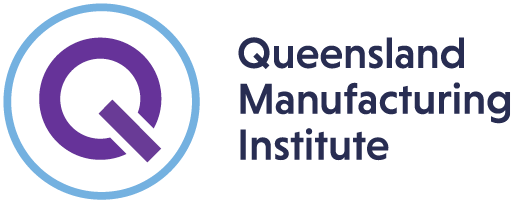Inspiring our students through additive manufacturing
To create the substantial change we need to engage with the younger generations, our future thought leaders and world leaders, to ensure they have the skills and knowledge needed to create a positive impact. To promote our manufacturing capabilities and position Australia as a powerhouse in the global economy, we must continue to inspire young students who could one day be the next industry leaders.
Australian Manufacturing Priorities
In 2020, The Australian Government released the 10-year Australian Manufacturing Priority roadmap to help transform Australia’s industry landscape. One of the key strategies to achieving the goals is driving the development of a highly-skilled workforce. While many are aiming to achieve an interest in the later years of adolescence and into early adulthood, there has been a gap in the knowledge for the younger generation, our primary school students. The Additive Manufacturing STEM 3D Printing in Primary School Project aimed to correct this.
This project was developed in collaboration with the Queensland Department for Manufacturing, Regional Development and Water (DMRDW), Queensland Department of Education, Queensland Manufacturing Institute (QMI), Gateway to Industry in School Program for Advanced Manufacturing and Makers Empire.
It aligned with achieving multiple identified actions, including:
working with schools to align skills development and higher education with emerging industry requirements
introduce practical industry learning opportunities for school students
practical learning in schools as an introduction to advanced manufacturing
developing foundation and employability skills such as adaptability, resilience, digital literacy and STEM skills.
The Collaborative Proposal
In collaboration with DMRDW, and Queensland Department of Education, QMI developed a project proposal for the program, which was accepted in late 2020. Tying into the Australian Manufacturing Priorities objective to provide support to regional skill growth, the project was delivered by Maker Empire across metropolitan and regional areas in 2021.
With a monumental following and access to industry and school leaders, the project tapped into the GISP Advanced Manufacturing network to gain interest and engagement with schools. The schools chosen to participate in the project were Hillcrest Christian College, St Francis Xavier Catholic Primary School, Runaway Bay, Gainsborough State School, Numinbah Valley State School, Pimpama State School, Robina State School, and Worongary State School.
The Additive Manufacturing STEM 3D Printing in Primary School Project
The Additive Manufacturing STEM 3D Printing in Primary School Project aimed to build teacher capabilities to transform STEM learning, involve more students in STEM learning and achieve excellence in STEM learning for all learners. To achieve these objectives, the collaborative team worked out three essential stages to equip both the teachers and students to thrive.
[Additive Manufacturing STEM 3D Printing Project Image pg 7]
The project started with two workshops with the teachers from the selected schools to equip them with the knowledge and skills to better implement technology, specifically 3D printing, into current programs across all disciplines. The workshops helped teachers to develop their own awareness and understanding of additive and advanced manufacturing. Feedback provided after the workshops shows that teachers believe that STEM nurtures and develops curiosity while sustaining interest and agency within a subject. With more informed teachers, the program donated 3D printing machines to the elected schools to conduct projects in their chosen area that would later be showcased.
A showcase to display the work of and to award the participating students was conducted on November 23rd, 2021 with over 20 students and special guests in attendance. Our very own Executive Director, Shay Chalmers, opened the event with a speech about her career and the exciting developments and pathways for students wanting to pursue a future in manufacturing. Following this the students had the opportunity to share their insights into their projects as well as attend other schools’ stands.
[Additive Manufacturing STEM 3D Printing Project image pg 27]
Following the completion of the projects, the teachers had reported feeling more confident in teaching technology, and even further personal growth in their own technical skills in additive manufacturing. Most of the participating schools have shared their plans to further implement 3D design, 3D printing and design thinking projects in 2022.
QMI and GISP’s extensive involvement throughout all stages of the projects has created a significant difference in the lives of our future manufacturing experts. We plan to continue our mission to inform and inspire the next generation of industry professionals through their awareness-building programs in schools.


